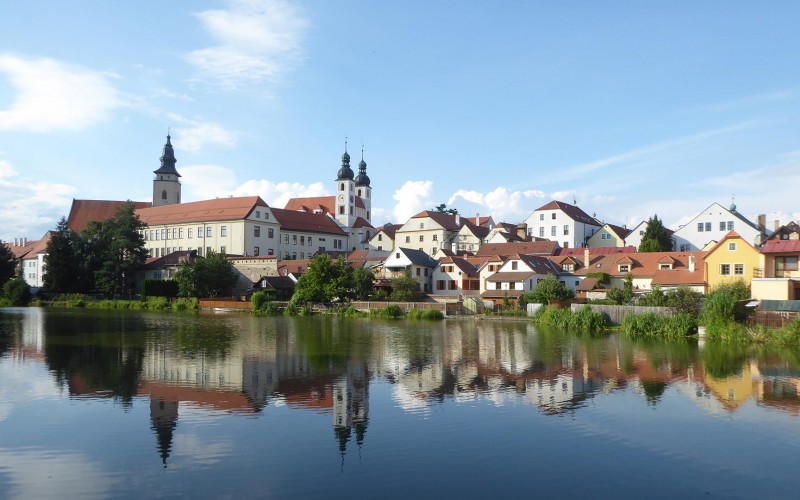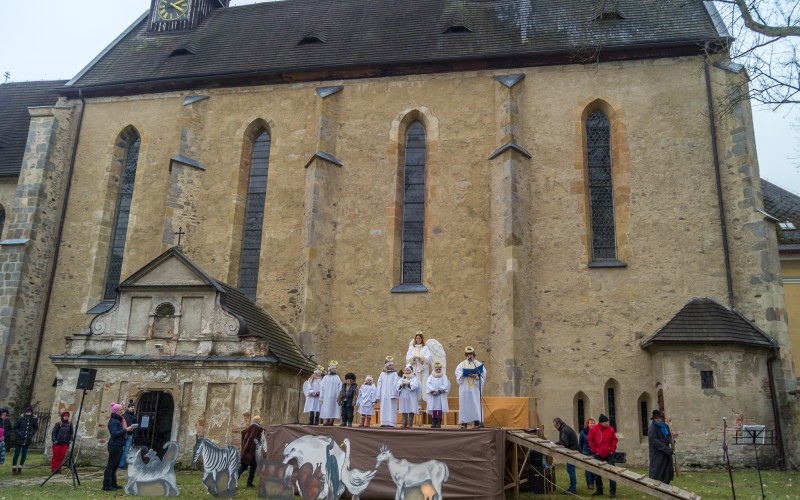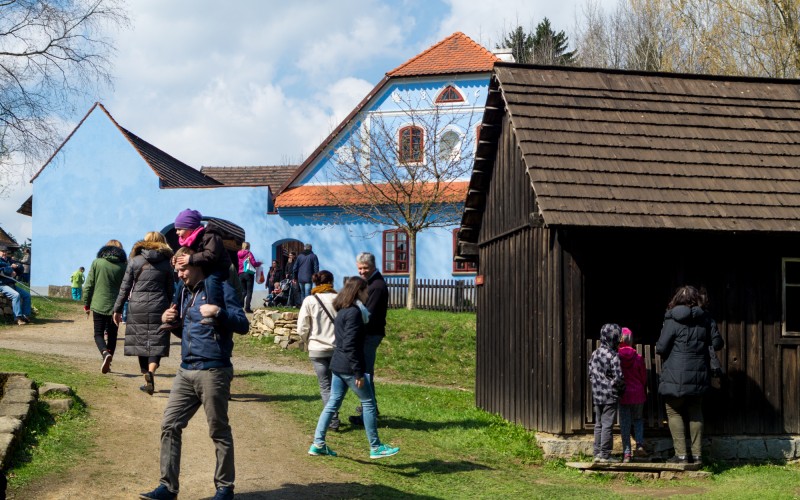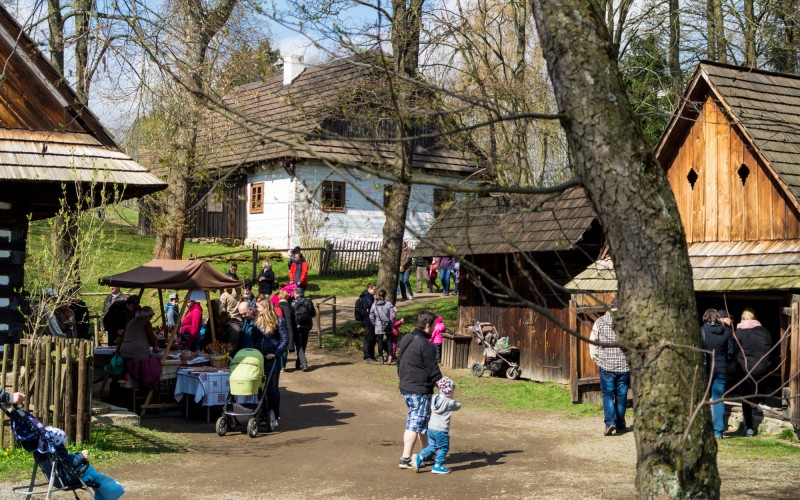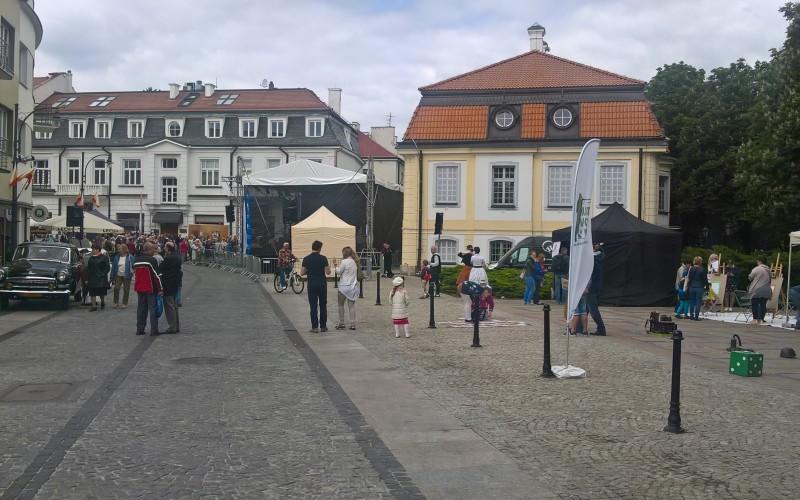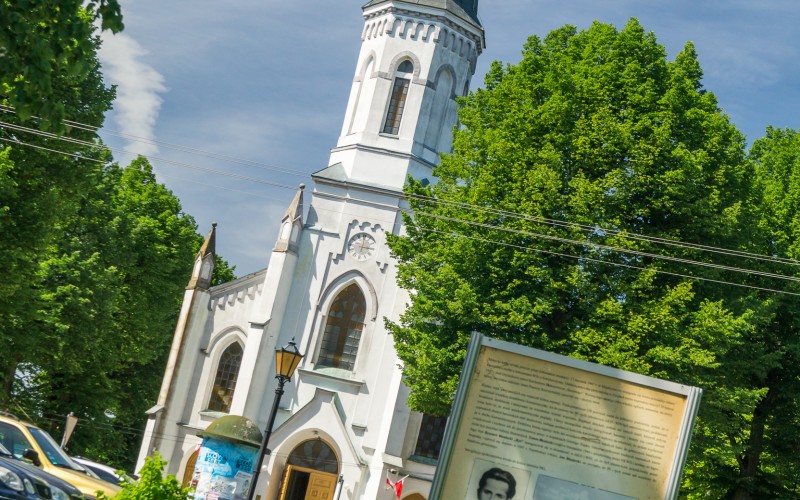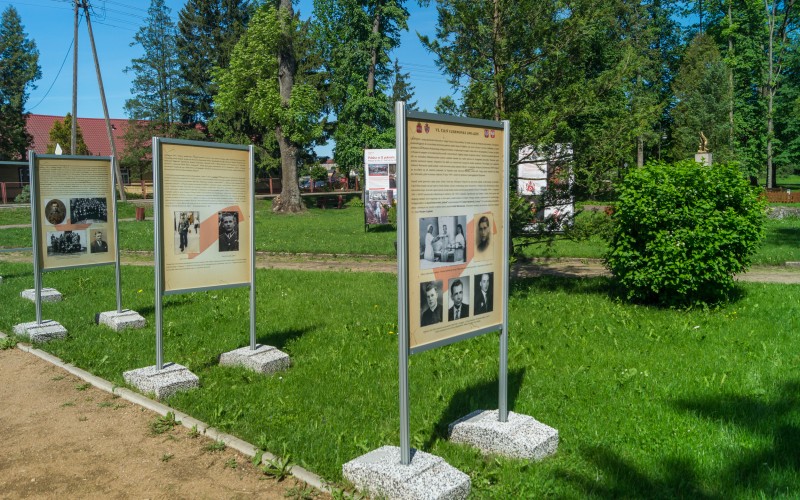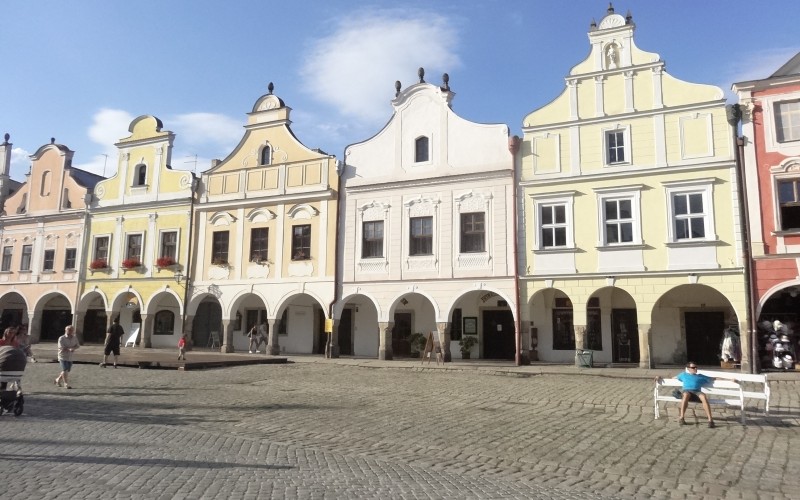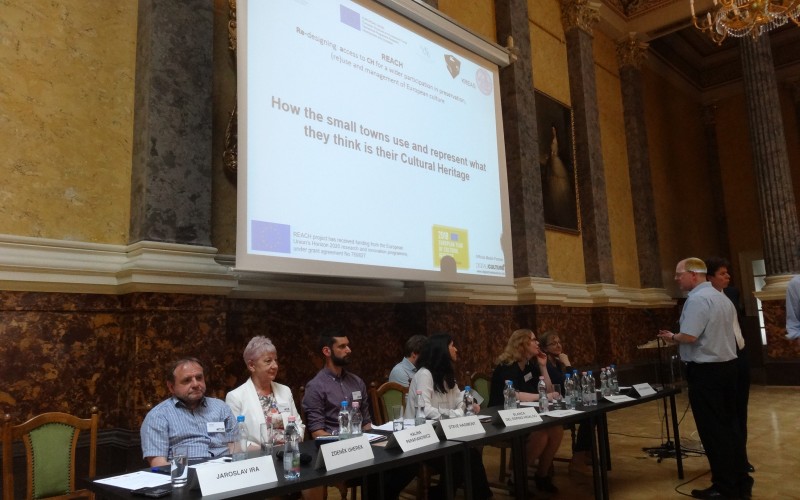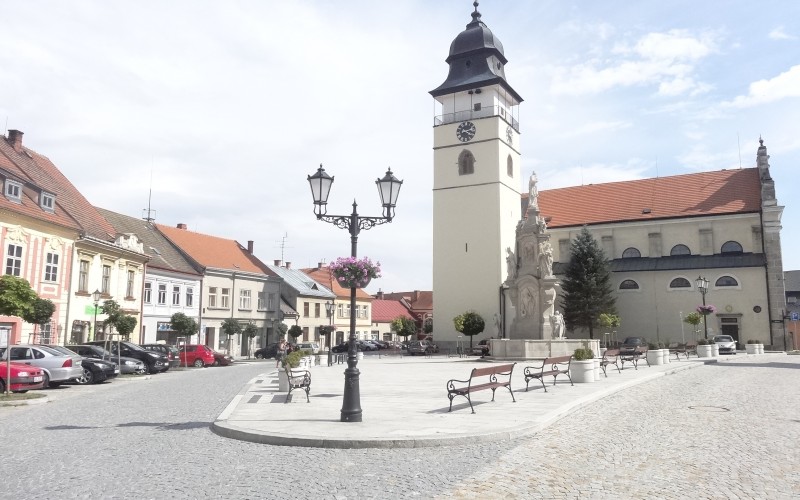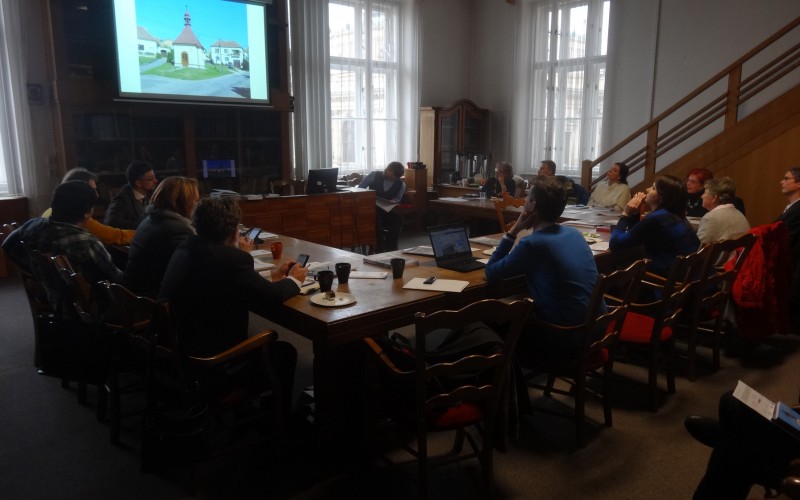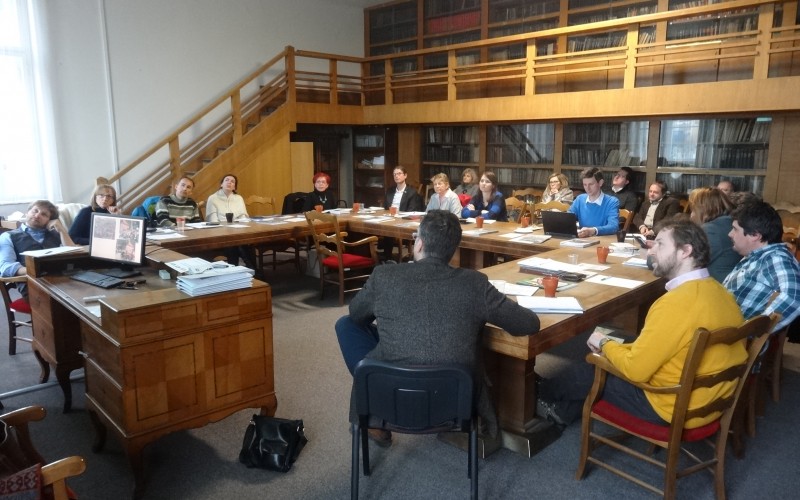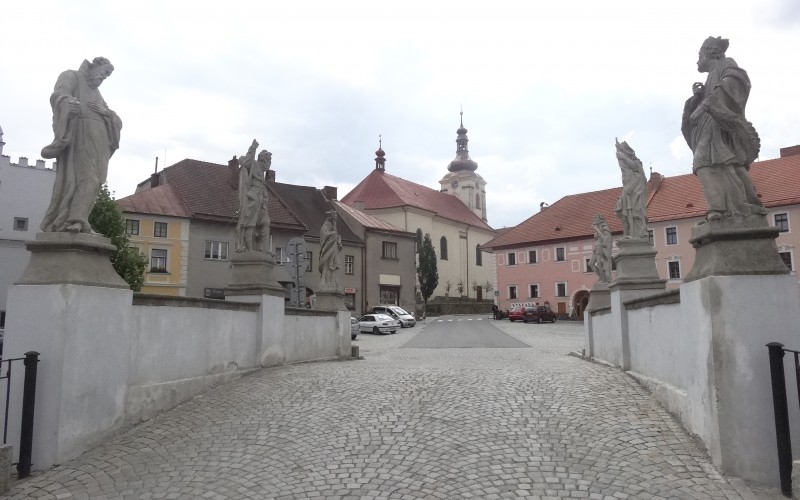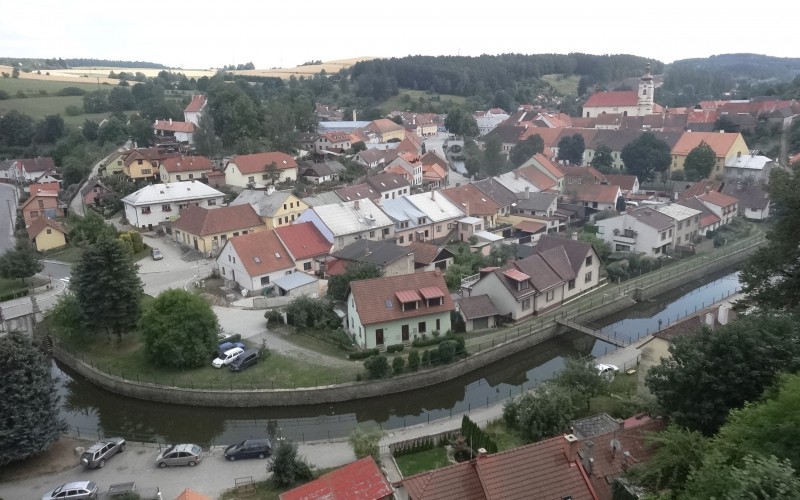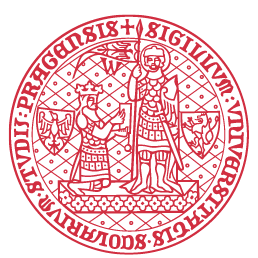This page is available in: Čeština.
Czech Republic
Task Leader: CUNI (CZ)
This pilot focused on the challenges and perspectives of small towns. Recent geographical studies define a small town as one that has a population of about 20,000 people or less, although there are sometimes also economic criteria, depending on their location. Towns are often in the vicinity of a city, usually in the countryside and so have both urban and rural influences.
In particular, this pilot explored the uses of cultural heritage in small towns. More specifically, it mapped how cultural heritage has been defined, represented and used by small towns. Drawing on many insights from debates with local stakeholders and cultural heritage professionals, the pilot delved into the complex issue of cultural heritage and small-town resilience, especially in disadvantaged regions. The major objective was to recognise potentials and problems that foster or block pathways for uses of heritage in resilience-enhancing ways, and to outline avenues for better practice.
The pilot focused in particular on the Czech Republic and small towns in the Vysočina region, with further examples drawn from Poland and Slovakia. A range of documents were analysed, such as towns’ self-promotional materials, and local heritage-related institutions’ initiatives, measures and events were mapped, which provided the pilot with an understanding of the common patterns and diversity in how cultural heritage is used as an asset in small towns, by whom and for what purposes.
Discussion took place with representatives from various institutions, that ranged from transnational networks (such as ECOVAST), to nation-based agencies (CzechTourism, National Heritage Institute), to regionally based institutions (Region Vysočina, representatives of towns) and expert institutions (ProPamátky, Anthropictures, Petr Parléř society) all of whom have helped to identify some of the most typical weak points and desiderata of cultural heritage practice.
These findings include:
- under- and over-tourism;
- discrepancy between small town stakeholder’s values and needs and cultural heritage policies;
- lower sustainability of cultural heritage events and institutions in small towns;
- bias toward built heritage.
At the same time, the encounters served to explore the potential of participatory approaches in cultural heritage research, based on collaborative identification of major themes, such as:
- questions and good or bad practices to be analysed;
- providing mutual feedback between academia and the applied cultural heritage sphere;
- mutual learning from cross-sectoral interactions.
Pilot conclusions
Cultural heritage is widely used in the promotion of small towns, and a range of media are often available to instantly represent it. However, the overall images and stories often remain biased towards tangible, monumental, and old heritage, with little effort made to address issues such as a town or region’s difficult past and its contemporary problems, or to make visible and explain links to wider spatial referents, such as Europe or other places.
The small towns that have engaged with the pilot have often demonstrated robust networks of engaged individuals and devoted institutions. Examples include innovative approaches and beyond-standard efforts in heritage representation and cultural activity, yet stronger support, in terms of finances, expertise and coordination, is needed to maintain and further develop this socio-cultural capital.
Management, (re-)use and preservation of cultural heritage may foster small-town resilience but may also have negative effects, as the prioritisation of some goals and perspectives, such as over-reliance on tourism, may destroy the place for its residents, who find that they can no longer live there. Resilience perspective requires thinking beyond narrow horizons of immediate economic profit and day-to-day renovation projects, and instead needs to find ways of using cultural heritage to cultivate long-term social, cultural, and political qualities and skills of the small-town communities.
Further detail of the pilot can be found in D5.5 Small towns' heritage pilot results.
Events
21-22 November 2019, Prague (Czech Republic). Workshop On Resilience And European Cultural Heritage.
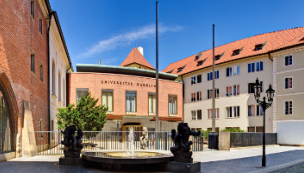 Two days workshop supported by the Strategic Partnerships Programme, research Framework PROGRES and H2020 funded REACH project and the Seminar of General and Comparative History of the Faculty of Arts, Charles University in Prague.
Two days workshop supported by the Strategic Partnerships Programme, research Framework PROGRES and H2020 funded REACH project and the Seminar of General and Comparative History of the Faculty of Arts, Charles University in Prague.
21 Novembre: Heritage and Local Communities in Former Yugoslavia
22 November: Resilience and Resistance – Josefov fortress in time of climate crisis.
Look at the flyer for more information
29 May 2019, Prague (Czech Republic). Small Towns Pilot in conference with the associate partner of Toulouse.
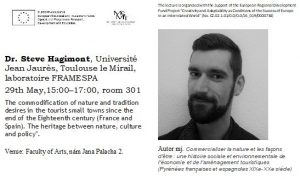 The title of the conference was "The commodification of nature and tradition desires in the tourist small towns since the end of the Eighteenth century (France and Spain). The heritage between nature, culture and policy". It has been organized with the support of the European Regional Development Fund Project “Creativity and Adaptability as Conditions of the Success of Europe in an Interrelated World”. Charles University brought its important contribution talking about Small Towns pilot
The title of the conference was "The commodification of nature and tradition desires in the tourist small towns since the end of the Eighteenth century (France and Spain). The heritage between nature, culture and policy". It has been organized with the support of the European Regional Development Fund Project “Creativity and Adaptability as Conditions of the Success of Europe in an Interrelated World”. Charles University brought its important contribution talking about Small Towns pilot
15 February 2019, Prague (Czech Republic). Small Towns Heritage Pilot- Regional meeting with associate partners.
 "An-open-space" meeting to debate the development of the pilot, database of best practices and discuss topics came up on the seminar with Czechtourism and Anthropictures.
"An-open-space" meeting to debate the development of the pilot, database of best practices and discuss topics came up on the seminar with Czechtourism and Anthropictures.
24 January 2019, Prague (Czech Republic). Seminar of the Small Towns Heritage Pilot with Czechtourism and Anthropictures, associate partners of REACH.
 Main topics were:
Main topics were:
- the ambivalent role of tourism: it can help and destroy the heritage at the same time;
- the strengths and weaknesses of bottom up participatory initiatives;
- the very different understanding of authenticity, which can be even invented by the members of the community, or local stakeholders;
- the problems in understanding what is the community in tourist business.
14-16 November 2018, Prague (Czech Republic). Workshop “Resilience of Heritage in Resilient Cities”
 The Institute of Sociological Studies at the Faculty of Social Sciences, KREAS VP2WP3 “Adaptation in Historical Perspective” research team and REACH project organized a 2 days workshop on "Resilience of Heritage in Resilient Cities”. Read more.
The Institute of Sociological Studies at the Faculty of Social Sciences, KREAS VP2WP3 “Adaptation in Historical Perspective” research team and REACH project organized a 2 days workshop on "Resilience of Heritage in Resilient Cities”. Read more.
Further information: workshop's webpage, Call for Papers, Programme,
24-25 May 2018, Prague (Czech Republic). Workshop “Diversity and Local Contexts: Adaptation and Heritage”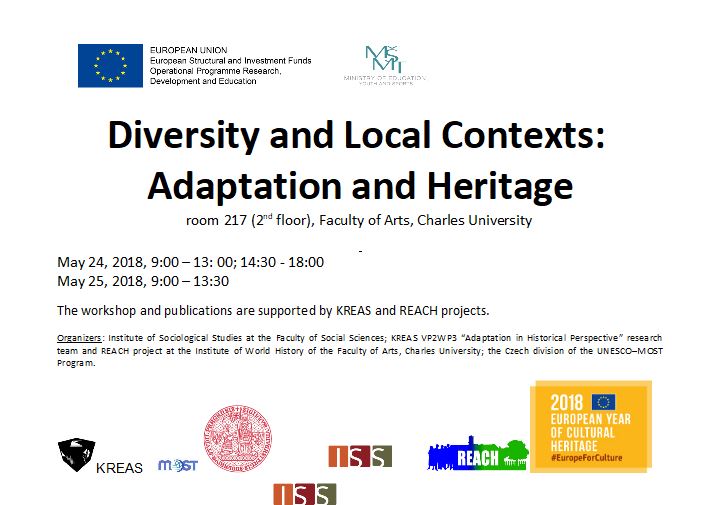 The Faculty of Social Sciences (Institute of Sociological Studies) and the Faculty of Arts (Institute of World History) of Charles University in cooperation with the Czech division of the UNESCO–MOST Program, organized a 2 days workshop on”Diversity and Local Contexts: Adaptation and Heritage”. Read more.
The Faculty of Social Sciences (Institute of Sociological Studies) and the Faculty of Arts (Institute of World History) of Charles University in cooperation with the Czech division of the UNESCO–MOST Program, organized a 2 days workshop on”Diversity and Local Contexts: Adaptation and Heritage”. Read more.
Further information: Poster , Programme.
- 15 February 2018, Prague (Czech Republic). Small towns in promotion of its cultural heritage: possibilities and experiences.
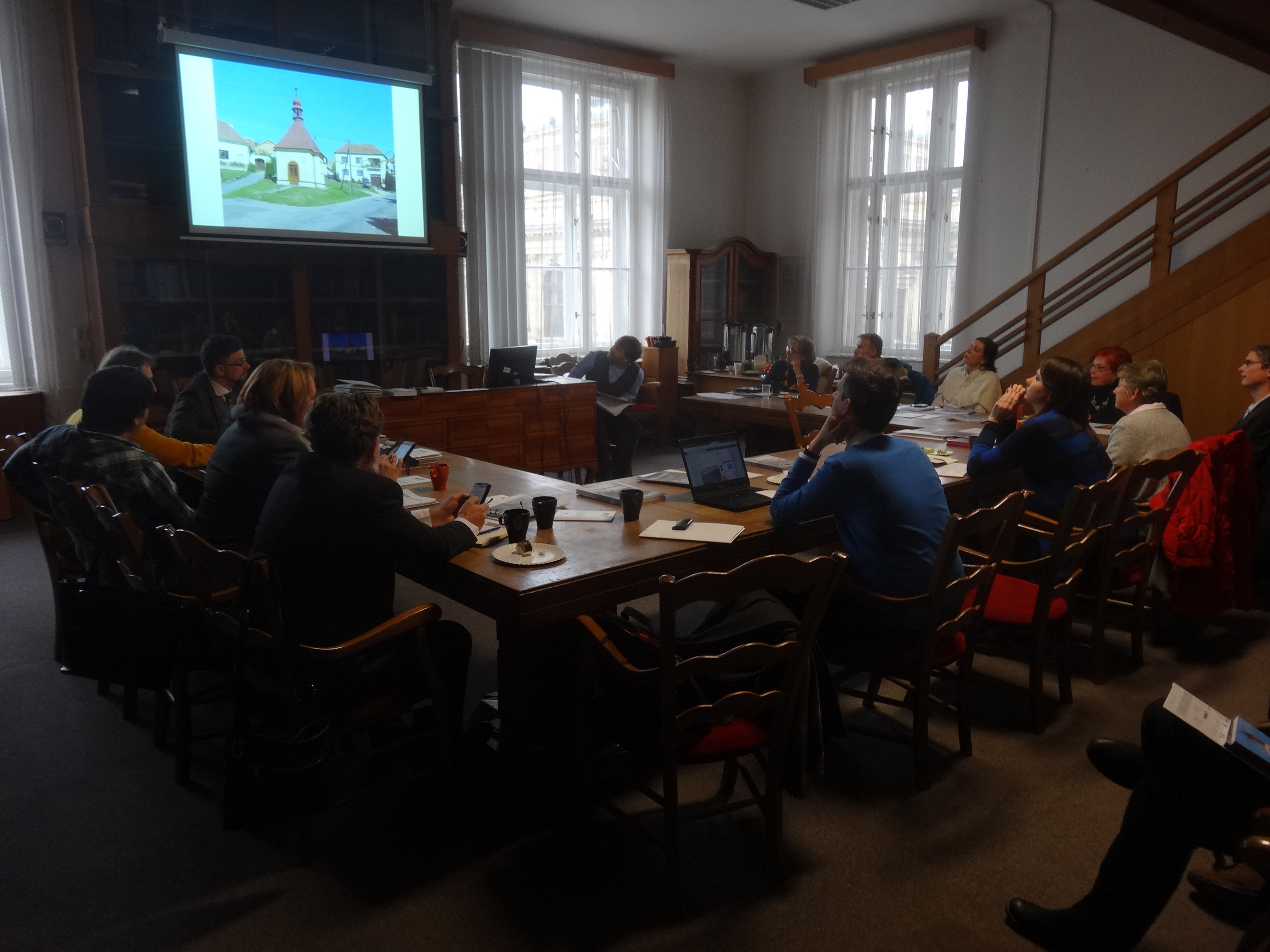 Charles University leader of the HORIZON 2020 REACH Project pilot on small towns heritage, promoted the first workshop with associated partners of Czech Republic. Read the outcomes of the first workshop on small towns heritage pilot here. Further information:
Charles University leader of the HORIZON 2020 REACH Project pilot on small towns heritage, promoted the first workshop with associated partners of Czech Republic. Read the outcomes of the first workshop on small towns heritage pilot here. Further information:
Poster of the workshop, programme of the workshop, presentation , report of workshop on Urban History Newsletter.

